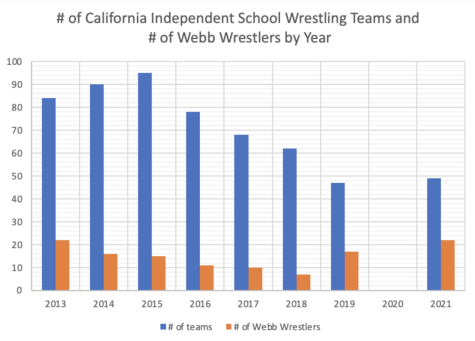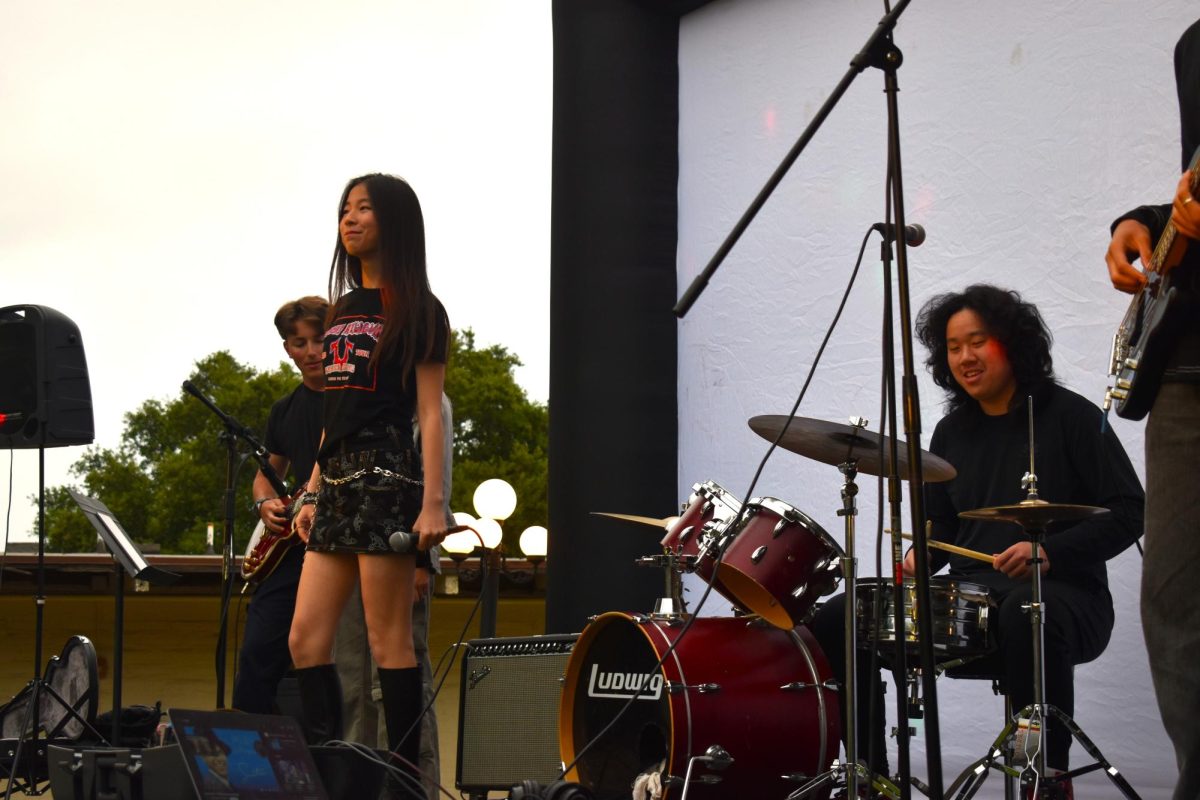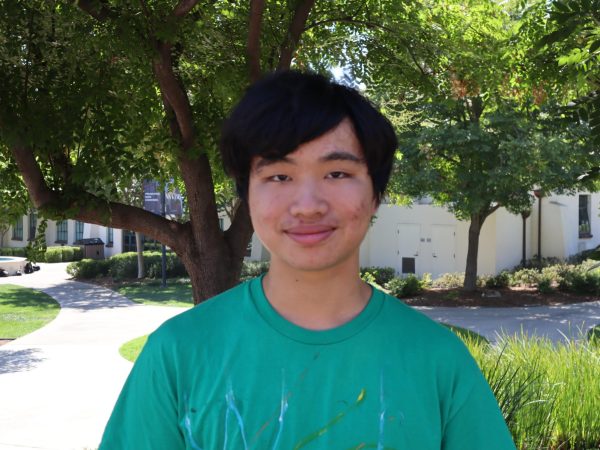Aaron Yang (’25) described it as “a fight against yourself as much as your opponent.” Hector Vargas (’25) described it as “pushing beyond the limits you thought you had.” Wrestling is a primal sport, where one uses nothing but their body to perform a Shakespearian drama of anger, villainy, and exertion, but also friendship and brotherhood. However, this ancient sport has been on the decline among independent high schools for the past decade all over the United States, especially in California. Wrestling participation has declined by over 37% since its peak in 2015, according to California Interscholastic Federation (CIF) census data.
In defiance of the decline, however, Webb’s wrestling program has thrived and emerged to become the largest wrestling team of only six private and nonsectarian California schools that offer the sport.
“We are one of the only independent private schools, outside of Christian schools, that still has a wrestling program in Southern California,” said Eric Hansen, the head coach of wrestling. “I think schools end up having to make choices between programs and oftentimes, there are more popular sports, maybe for affluent kids, that the administration will switch to rather than wrestling.”

“The team before I came around four years ago was becoming increasingly small because there was little participation,” Mr. Hansen said. “The first year I was here, it grew. There were a couple of guys who were good wrestlers. On my second year, we got through the wrestling season, but COVID hit immediately after. Last year, the team really grew. It was the first time in a long time, the team had more than 20 people.”
The growth of the team not only adds more awareness, talent, and perspectives in the team, but also helps existing wrestlers improve more easily with people in their weight class.
“Since there are more people, it’s easier to get better since there are more people to practice with,” said Conrad Poon (’23), a team captain. “For example, even though we didn’t have tournaments this year, I could still practice with a lot of new wrestlers and get a feel for wrestling people in my weight class. Having more people gives a better progression in general.”
The reason for this growth may lie in Webb wrestling’s unique team spirit, and the coaching philosophy of Mr. Hansen, which encourages more people to join and existing members to stay, despite its intensity.
Many Webb wrestlers who tentatively joined with no wrestling experience found a tight-knit team that supported them.
“Starting this season, I didn’t feel I was capable of wrestling since I was worried about my eyesight, and I thought I was generally unathletic and skinny.” said Armen Xue (’25). “I even emailed Mr. Wishek saying that it was too intense. But my teammate, Hanbo Xu, told me that when I’m on my deathbed, I’ll at least be happy that I tried rather than regretting that I didn’t. It was so meaningful to me at the time, and I decided to continue and pull through this season, mentally and physically stronger than before.”
The head coach, Mr. Hansen, also played a large role through his hard work in bringing the team to life.
“I don’t know that we would have a wrestling program if it weren’t for Mr. Hansen,” said Steve Wishek, Webb’s Athletic Director.
Some new wrestlers also joined simply because they like Mr. Hansen.
“I saw Mr. Hansen during the freshmen year retreat, and I thought, ‘Dang, this is a really nice guy,’” Hanbo said. “Then I saw an email saying that he was the head wrestling coach, and at that moment, I decided to go on this path.”
In addition, many wrestlers enjoy Mr. Hansen’s unique coaching style, which is intense, yet thoughtful and supportive.
“Mr. Hansen is almost like a senior that brings us around and gets sweaty with us,” Armen said. “He’s very adaptive with his coaching, so if something doesn’t work or if it’s not clear, he’ll try to change things until it works. One of my favorite things he does is his creative and nuanced approach to teaching moves by making it easy to visualize and think about. Instead of ‘put your arm over here,’ for example, it’s ‘open the door’ or ‘over the shoulder.’”
Mr. Hansen also supports his team when they fail and make mistakes, seeing them as opportunities for improvement.
“He’s a really kind person,” Hanbo said. “I say kind and not nice because even though he pushes you to be the best and is sometimes very strict, he doesn’t push you down when you make a mistake. Every time I lost, he would always comfort me and point out what I needed to work on. At meets, I would feel great whether I won or lost.”
Mr. Hansen was a wrestling coach at previous schools he worked at on the East Coast, Jordan, and Minnesota. He was a low-level assistant coach at a private school in Maryland whose wrestling team won multiple state championships and a national championship. In 2019, he became head coach at Webb, taking the reins from Coach Evan, who volunteered to become the assistant coach.
His experiences at the school in Maryland shaped his philosophy of wrestling coaching.
“I saw how unhappy they were, starving and tired with frowns on their faces when they weren’t actively competing,” Mr. Hansen said. “I didn’t want it to be like that. Suffering can teach you, but there’s a limit to it. Of course, if you don’t work hard, you’re going to lose every time, but I also do want it to feel something special as part of the team.”
His belief that wrestling is not merely about winning, but about growing as a person and a team, motivated more people to stay in the team.
“If Mr. Hansen was one of these coaches that would scream and yell, I probably wouldn’t have stayed,” Hanbo said.
Unlike many other wrestling teams, Webb’s wrestling team does not cut weight, which involves intentionally losing up to ten pounds in a month to compete in lower weight classes. While doing so may mean that Webb wrestlers may face stronger and larger opponents, refraining from weight-cutting prioritizes their health and fitness.
“I’m not comfortable doing it since I grew up doing it,” Mr. Hansen said. “It takes away your energy.”
Webb’s administration has also been instrumental in nurturing the wrestling program, providing resources and support.
“We have a really nice wrestling room,” Mr. Hansen said. “The mats that we have now were brand new before I got here, and wrestling mats are super expensive. That’s one thing that limits a lot of wrestling programs since mats can be twenty or even twenty-five thousand dollars.”
Looking toward the future, Mr. Hansen hopes to not only expand the team, especially among VWS, but also encourage people to stay in the program for longer.
“We have to get stronger,” he said. “But mainly we have to make sure people stay for four years, since I’ve noticed that four-year wrestlers, even if they don’t have prior experience, actually do really well.”
Thus, Webb’s wrestling team is an example of how small independent schools can continue this sport by showing its true nature: a sport of exertion and fighting, but also one of teamwork and brotherhood.















